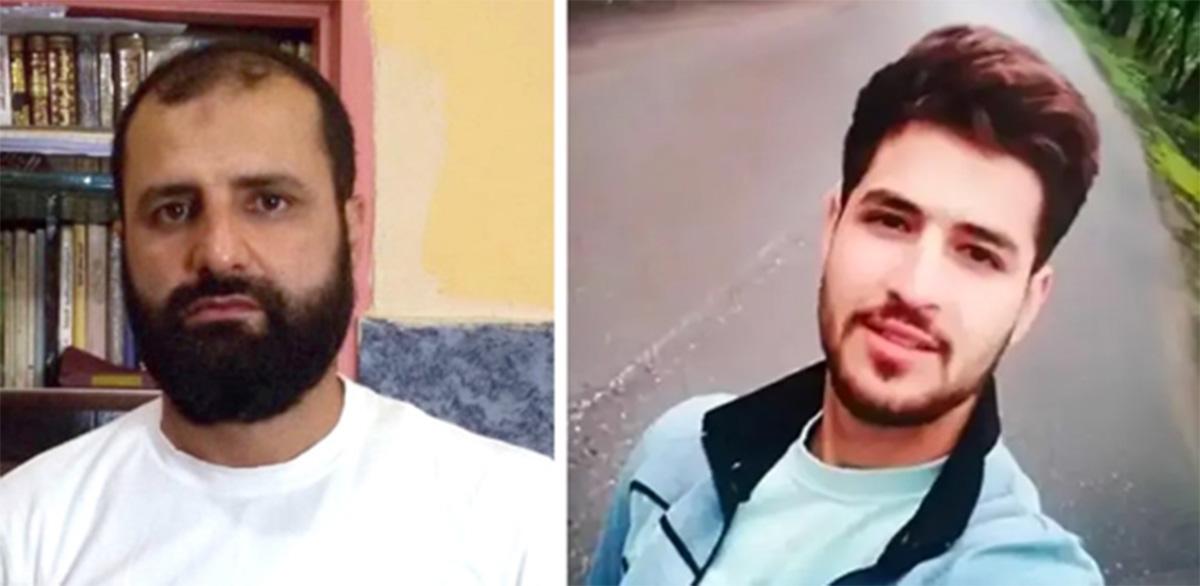This time, the Islamic Republic of Crime and Execution took the lives of Mohammad Ghobadlou and Farhad Salimi. The earthquake of the people’s uprising [in 2022] has had such a conspicuous and lasting effect on the Islamic Republic that they are forced to engage in the murder of our people—to take revenge and to create fear and passivity.

L-R: Farhad Salimi, Mohammadi Ghobadlou. Photos: Social Media
The Islamic Republic kills us to shut us up and make us forget our passion for liberation and our joy in the struggle. The Islamic Republic is determined to make us submissive or else to end us. They put nooses around the necks of our freedom fighters to force us to submit to misery, servitude and enslavement. Never! We will take the place of our heroes who they hang on their gallows. Our anger is stronger than the will of the Islamic Republic. We know that our path is soaked in blood, but we fight to totally uproot the Islamic Republic and in that way uproot its gallows as well.
The more bankrupt the Islamic Republic becomes, the more they have a necessity to kill. They have no legitimacy left to rely on, in hopes of controlling the political situation through the game of elections. Their finger is on the trigger, and they are increasingly forced to decrease the interval between their crimes. These conditions increase the intensity and magnitude of the Islamic Republic’s crimes. This situation is not because of the strength of their authority, but rather because of the necessity they face as a stumbling, crumbling creature, plunging their claws into whatever comes within reach. The regime’s message is: “the price of bravery and resistance is death.” Our message is: “NO to the Islamic Republic, NO to execution, NO to the system that the Islamic Republic emerged from.”
Opposing execution is not [just] a moral stand. It is a struggle against decadent politics and ideology. In a word, it is opposition to the existence of such a global system that rots and degrades humankind and living things. We must unite against execution, the execution of everyone. “Everyone” includes thousands of people from the impoverished sections of society who, as a result of the criminal workings of this system, engage in “smuggling,” “theft” and murder so that they and their families can survive, while the real smugglers, thieves and murderers are the rulers that head up the courts, the judiciary and the positions of leadership in the system. “Everyone” also includes those who side with, and become mercenaries for, various Islamist factions in reactionary wars amongst themselves, or in conflicts between the Islamic fundamentalists and the imperialists, as well as those who are drafted by the ruling powers. Some of them come from the most impoverished sections of society and are angry with the situation—but out of anger and desperation have sought refuge in another part of the very same system, such as youth who have become monarchists or Jaish-ul Adl to fight against the Islamic Republic, etc.1 On the one hand, this regime drives people into reactionary [forms of] opposition—revenge-taking, jihad and suicide—and on the other, it executes them without judicial due process, without the right to defend themselves and have a lawyer.
The fight against the death penalty as a tool of systematic state repression and the struggle for the immediate and unconditional release of political prisoners are interconnected.
The political prisoner as a symbol of society's rebellion against the state and its crimes plays a particular role in the ruling regime’s strategy to advance state repression. By imprisoning militants, the Islamic Republic tries to ward off both the immediate danger of uprising and insurgency and its consequences; it holds hostages to use as bargaining chips and to put pressure on society and fend off potential future dangers; they are good candidates for heavy prison sentences and executions in order to take away a society’s courage to revolt.
This attack by the regime must be met with a very strong counter-attack from all social movements and become the focus of a broad struggle. Executions also take lives, as well as [aiding the regime’s] imposition of economic deprivation, [oppressive] political relations and structures, lack of rights, religious obscurantism, anti-women, oppressive sexual and gender orientations, regional reactionary wars, national oppression and environmental destruction, etc.
This cycle of oppression and exploitation, and lack of value placed on human life shows the necessity of putting an end to this reality that is more frightening than any nightmare. If we are to change the direction of society, the revolutionary overthrow of the Islamic Republic is an urgent necessity. It is possible and necessary to have a different humankind, society, and world. But that end and this necessity and possibility cannot be achieved spontaneously, or even with simply the struggle, bravery and sacrifice of people, who are tired of the conditions.
These conditions will continue, and worsen in dangerous and unpredictable ways. There is no hope for the future unless, transformed by the struggle and effort of the communist vanguard forces, the goal of communist revolution becomes the conscious aspiration of an increasing number of people in society. Those who have experienced repeated periods of struggle and failure without knowing why this happened or how to overcome these situations, yet are still willing to risk and sacrifice their lives so that the Islamic Republic will cease to exist, do not deserve this confusion, disappointment and expense. Their real hope for revolution and to succeed in the ongoing struggles must, through intense and energetic struggle to change people’s way of thinking, become the basis for the struggle against the Islamic Republic.